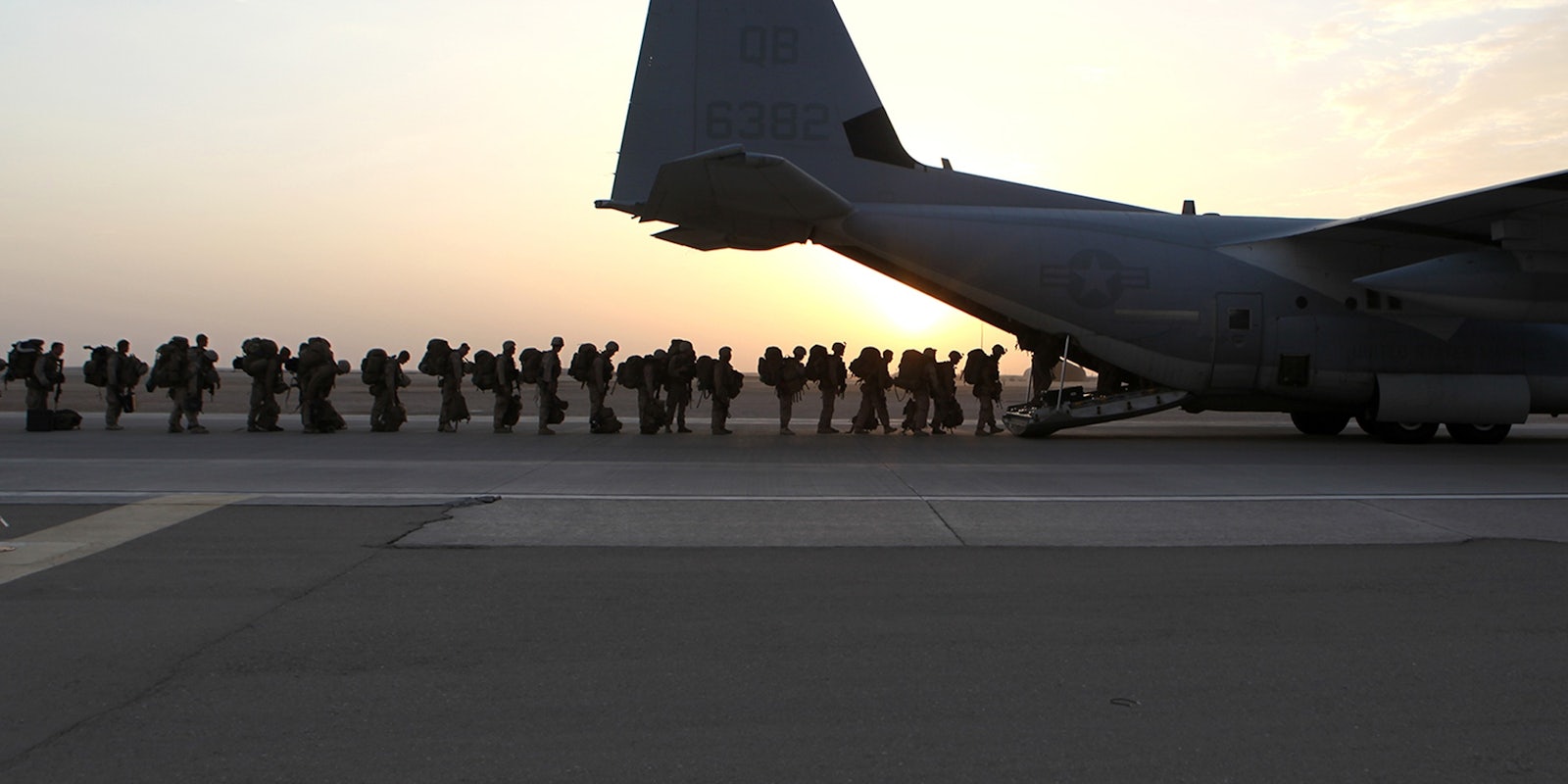This week another American name was added to the list of the over 2,300 soldiers, sailors, airmen and Marines who have fought and died in Afghanistan.
Staff Sgt. Matthew McClintock, 30, of Albuquerque, New Mexico, was killed and two others were wounded during an attempt to evacuate wounded U.S. special operations forces during a firefight with Taliban fighters in southern Afghanistan’s Helmand province.
Nearly a week earlier, six U.S. soldiers lost their lives in a suicide bombing attack in a central Afghanistan province just 45 minutes northwest of the country’s capital of Kabul.
Seven Americans dead in the last two months, fighting a war the White House and Pentagon declared essentially over last December.
During the ensuing news cycle, reporters dutifully filed stories and news broadcasts, attempting to put into context why American troops continue to die carrying out what the Pentagon has dubbed a “non-combat mission.”
Professional talking heads and armchair pundits took to the airwaves and social media to debate Washington’s continuing involvement in Afghanistan. Meanwhile, Defense Department spokesman Peter Cook characterized the loss of yet another American life in Afghanistan “a painful reminder” of what has now become the longest armed conflict in U.S. history.
But for all the breaking news coverage these latest casualties caused little more than a ripple online.
A day after the helicopter crash in Helmand, the hottest trending issues on Twitter and Facebook included #WeedMovies, #ZoeEverAfter and pictures of Hollywood actress Anne Hathaway wearing a bikini while pregnant.
In the post-9/11 world, the power of social media can act as a conduit to trigger widespread political upheaval, as seen during the Arab Spring. A simple hashtag, like #BringBackOurGirls, #Kony2012 or #JeSuisCharlie can ignite and unite the passions of millions across the globe behind a single cause.
Social media also has the power to take the virulent message of what was once the ragtag remnants of al Qaeda terror cells in Iraq and Syria and help transform them into the predominant existential terror threat facing the world today.
But amid all this, Afghanistan continues to bubble below the surface—a war that is entering its 14th year that has claimed thousands of U.S., NATO and Afghan lives has yet to garner a trending hashtag.
The simple question is why? And the answer, simply put, is Americans are simply tired of this war.
War weariness over Afghanistan and Iraq helped, in part, then-presidential hopeful Barack Obama take the White House in 2008 and again in 2012 on the promise he would end both conflicts during his presidency.
Even during the surge years of 2009 through 2011, arguably the bloodiest years of the conflict in which 1,200 U.S. died in Afghanistan, reporting on the war only made up four percent of total news coverage by U.S. outlets, according to a 2010 study by the Pew Research Center’s Project for Excellence in Journalism.
Afghan war coverage only made up five percent of U.S. all news coverage the previous year, according to the report. In 2015, U.S. casualty rates hit the lowest mark in Afghanistan since 2002, with 22 Americans dying in the conflict that year.
As a result, as of September 2015, only the New York Times, Wall Street Journal, Associated Press, Al Jazeera and Stars and Stripes had reporters based in Kabul reporting on the war full time.
All the major U.S. network news outlets along with international news organizations such as the BBC, Guardian and Los Angeles Times have pulled out of Afghanistan, depending on a network of freelancers and local staff to cover the war.
With the war shifting from a conventional conflict to the “grey war” fought by American and NATO “advisers” alongside Afghan troops, the shrinking press pool in Kabul is finding it increasingly harder to report from the front lines.
Officials from Operation Resolute Support, the moniker handed down by the Pentagon for America’s “non-combat mission” in the country, say access to U.S. and NATO troops is limited since they are simply not in the midst of the fight anymore.
But to the American and NATO troops and their Afghan counterparts that still go outside the wire day in and day out, the war is not defined in the abstract terms favored by those in Kabul or Washington.
“Nothing has changed, really. Except for the rules of engagement,” Czech 1st Sgt. Mike Baka told me during a nighttime reconnaissance mission in July. Based at Bagram Airfield in central Afghanistan, Baka’s unit patrolled the same area where a suicide bomber killed six American soldiers in December.
In the 2008 spy thriller Body of Lies, grizzled CIA division chief Ed Hoffman—played by Russell Crowe—succinctly characterized America’s fortitude when it comes to prolonged war. In the film, Hoffman lays plain the country’s attitude to the protracted nature of the Global War on Terror.
“Here at home with every death reported we have to deal with a public-opinion trajectory that slides rapidly from supportive to negative to downright hostile,” he tells a duo of unbelieving State Department bureaucrats during the movie’s opening monologue.
“People just get sick and tired of a moment’s silence at a ball game. They just wanna be told that it’s over.”
After 14 years, Americans just want to be told that it is over. And online and on social media—for better or worse—it pretty much is.
Carlo Munoz is a freelance foreign correspondent focusing on U.S. defense and national security policy, programs and operations. He was most recently a foreign correspondent with the Stars and Stripes, based in Kabul, Afghanistan. He also served as the National Security Correspondent for BuzzFeed, The Hill and Deputy Editor at AOL Defense/Breaking Defense. His work has appeared in the Guardian, Atlantic Media, Air Force Magazine, USNI News and elsewhere.
Image via DVIDSHUB / Flickr (CC BY 2.0)
